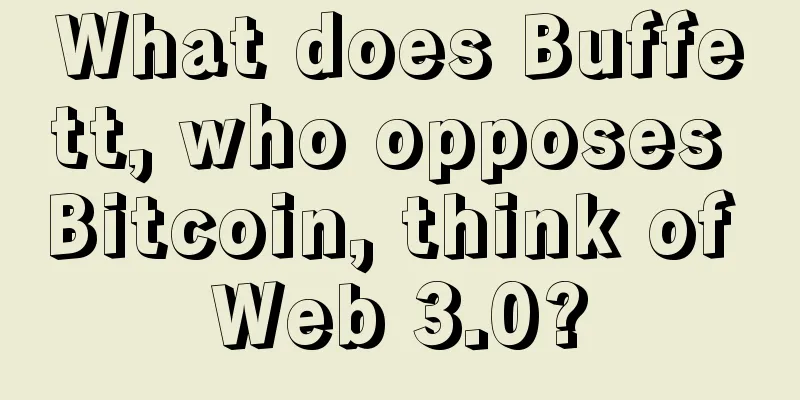On Bitcoin’s Distributed Defense

|
Bitcoin is a peer-to-peer electronic currency, and its P2P characteristics are sufficient to defend against nation-level attacks.
Some claim that Bitcoin could not possibly survive a well-organized nation-state attack. Others believe that Bitcoin’s decentralization is an nebulous concept with no ideal testing standards, and that decentralization is just a disguise for a developer conspiracy. If Bitcoin is not defensible, then it is meaningless; if decentralization is not important, then Bitcoin is not defensible. According to Paul Baran's 1964 paper on distributed networks, the key to network topology design is to ensure that normal communication capabilities can be maintained after a certain number of nodes are lost. A centralized network (star structure) will be paralyzed after losing a node, while a distributed network (polygonal structure) that combines these two will be more resilient. When we talk about Bitcoin’s defensive capabilities, we are not referring to its linear protocol or the communication properties we protect. As a currency, Bitcoin forms a social scenario, that is, the relationship between people. The defense we are talking about is against this social scenario, not a linear protocol. In the world of Bitcoin, consensus rules define the currency. Changes to these rules are implemented through hard forks and soft forks. In a hard fork, new transactions may be invalid even if they comply with the original rules. In a soft fork, new transactions are valid as long as they comply with the original rules. For example, the gold standard was decoupled from the Fed’s currencies in 1933 (hard fork), and from time to time these currencies were replaced with new currencies, although the old currencies remained legal (soft fork). A hard fork that is not generally agreed upon by coin holders is theft, which is why the rules that define Bitcoin are called consensus rules. As for currency, the Federal Reserve System is centralized (there is an authority), while gold is distributed (there is no authority). Gold is a currency defined by the smallest unit, which is impossible to transmit online and is not suitable for modern business. As an information currency, Bitcoin's innovation is that it is immune to the censorship of the authority (no censorship is required). A Bitcoin hard fork is equivalent to changing the smallest unit of measurement of gold. The social landscape is defined by people’s choices, and people protect themselves from fraud in transactions by choosing to accept or oppose changes to the currency. And only through the widespread application of such self-interested policies can the currency be protected from manipulation by authorities (e.g. hard forks that are not supported by consensus). The advantage of Bitcoin’s censorship resistance is that it is a function that ordinary people can confirm in transactions. How should we define this decentralization advantage? In the simulation system, a node represents a person, and an edge represents a valid Bitcoin transaction. The flow of Bitcoin in this scenario is directional, and each edge reflects the flow of Bitcoin and implies the number of transactions. If a person has never received bitcoin in a transaction and has never confirmed a transaction, then he/she does not contribute to this defense mechanism. If a person delegates his/her confirmation function to another party, then this proxy represents a node. In other words, the "payment processor" or "web wallet service" is just a node in the whole scene, and the clients they represent are not shown. When customers decide to leave the payment processor and confirm the transaction themselves, they cannot take any defense until they confirm it. The difference is like being fully armed vs. having the ability to be fully armed. The latter is of no use if you are being robbed. Imagine yelling at the robber, "Get out of my house or I'm going to the gun closet!" At any time, Bitcoin's defense capabilities are related to the number of users and the degree of decentralization of transactions. The strongest system is this: everyone in the world has the same amount of Bitcoin in a certain period of time. The most vulnerable system is this: a payment processing agency (or online wallet service provider) handles all Bitcoin transactions in a certain period of time. The centralized situation is shown in the figure: More specifically, the strongest system is the one that has the largest number of nodes and the largest variance in the number of edges that enter each node. In other words: Economic decentralization = Number of inbound edges * Standard deviation of inbound edges / Average value of inbound edges About the decentralization of miners A majority of mining hash power can commit double-spending fraud, can perform a soft fork, and can deny service through various methods. The decentralization of mining has nothing to do with the level of decentralization of the economy. Economic gains are usually achieved through 51% attacks, but state-level attacks are usually more interested in destroying the entire system. The entire network's computing power is used to defend against such attacks, but centralized hash power will stand on the opposite side of this preventive measure. This is because people will be more inclined to use this centralized advantage to gain benefits rather than contribute. Decentralization of mining can be defined in the same way as decentralization of the economy. Let's look at a social scenario. The ideal state is that everyone in the world has the same hash power, and just as importantly, there is enough hash power in the entire network to resist sustained and targeted state-level attacks, although this is not one aspect of the definition of mining decentralization. Decentralization of mining can be defined in the same way as decentralization of the economy. Let's look at a social scenario. The ideal state is that everyone in the world has the same hash power, and just as importantly, there is enough hash power in the entire network to resist sustained and targeted state-level attacks, although this is not one aspect of the definition of mining decentralization. At any given time, the degree of decentralization of Bitcoin mining is related to the number of miners and the degree of decentralization of hash power. More specifically, the most powerful system is the one with the largest number of nodes and the largest weight variance. Decentralization of mining = Number of miners * Standard deviation of hash rate / Average hash rate Decentralization of developers While software is fundamental and developers are the most fundamental component, decentralization can enhance the standard specification. However, developers cannot force people not to mine or confirm transactions when they can. Can we measure decentralization? Bitcoin is a monetary system, and one of the most essential aspects of money is fungibility, which requires anonymity. Bitcoin is opaque by design, and there are strong underlying technical efforts to facilitate this property. Without a clear definition, we cannot hope to test the degree of decentralization. However, it is possible to estimate the degree of centralization of mining using information provided or disclosed by miners. Similarly, it is possible to estimate the degree of centralization of the economy using information provided by online wallets and payment processors. It would be a huge mistake to assume that decentralization is unimportant, or that we cannot determine specific developments, or hinder them. What would the failure scenario look like? |
<<: BitShares: Creating a new model for global conglomerates
>>: UniCredit Bank releases white paper exploring blockchain applications in banking
Recommend
Analysis of a woman's fortune based on her nose
Physiognomy is one of the traditional physiognomy,...
What does a mole on the left arm indicate?
Moles are very familiar to people, but moles in d...
The most profitable woman's face
The most profitable woman's face As the sayin...
How to read your future destiny from palmistry
How to read your future destiny from palmistry St...
How to tell peach blossom from facial features
A person's luck in love can be seen from his ...
What are the characteristics of women with scheming faces? Which women are good at palace scheming?
Everyone is unique, and different personalities a...
Three types of palmistry that indicate a spendthrift
Three types of palmistry that indicate a spendthr...
Chin face analysis: What kind of chin is the best?
Everyone knows about physiognomy. The ancients oft...
Is it good for people with long philtrums? What does a long philtrum mean?
Is it good for a person with a long philtrum to h...
Facial features of a person with a strong desire to win
A strong desire to win is a double-edged sword. I...
Ripple and Expertus Launch Blockchain Pilot for Banks to Improve Liquidity Management
Expertus and Ripple announced that they have join...
What physical characteristics do women have good fortune?
What is a good life? Some women think it is marry...
Smile and personality
As the saying goes, don't hit someone who smi...
Are men with wide philtrums broad-minded and generous?
A person with a broad mind tends to see more and ...
What does the Pisces pattern mean and what is the impact on palmistry?
Palmistry has a certain influence on us. By inter...









